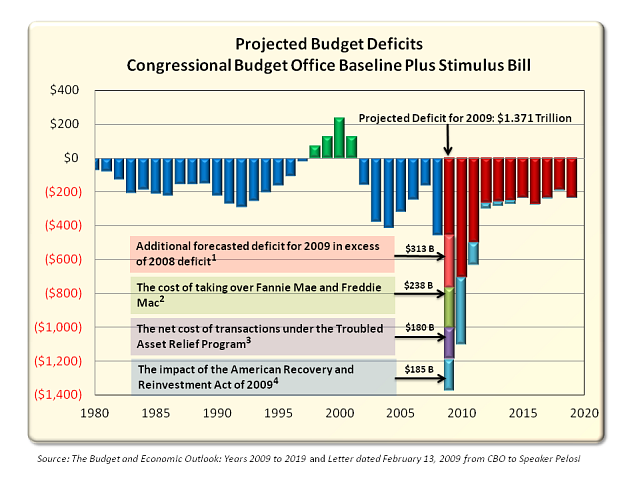I don't know much about the US government or how the budget process works, but here in Canada I don't think such a thing is even possible. Creating a budget is one of our government's most major, well-publicized duties. How is it that this lack of a budget isn't on the headlines of all the US papers? Does it really not matter? If it does, whose fault is it? As far as I understand, it's the president's responsibility to submit a budget to Congress, which may agree to it and pass it on to the Senate which may ratify it. Is this the case? Some might say that Congress is to blame with the gridlock that has been created there, but then why wasn't a budget passed even when the Democrats controlled the White House, Congress, and Senate? It seems to me that the bulk of the blame rests with the president himself in either A) not submitting a budget or B) not submitting a reasonable budget which could pass both houses. Is this a reasonable conclusion? I'm curious to read your viewpoints on this.
The Detroit News wrote:Around kitchen and boardroom tablesacross the state, Michigan families and businesses are figuring out their budgets for the year, deciding where to cut, where to grow and what should stay the same. Unlike these responsible Americans, Debbie Stabenow and other Senate Democrats have decided to fly blind. In fact, it has been more than 1,000 days since Senate Democrats passed a budget.
To put 1,000 days in perspective, there was no such thing as an iPad when Stabenow and her colleagues last passed a budget. General Motors had never declared bankruptcy, and our national debt was $4 trillion smaller.
A budget serves as a financial blueprint for the government, and it lets taxpayers and employers know how the government is going to impact their bottom line.
Knowing what the tax rates are going to be in the next 12 to 24 months is critical to small-business owners as they look to expand. Will they have enough after-tax income to be able to grow or will the tax structure be changed in a way that makes job creation more difficult? This uncertainty discourages the risk-taking necessary for the American entrepreneurial spirit to flourish again.
Moreover, without a budget, spending will increase, as there is no restraint, no boundaries. By writing and passing a budget, we can identify the funding that must be prioritized, while separating out and eliminating the pet projects and irresponsible spending of our hard-earned tax dollars.
As we begin to curb federal spending, we can work toward lower, more reasonable tax rates. Passing a balanced budget would also be the first step toward reducing our mountainous debt and putting our economy back on the path toward growth.
While she sits on the Senate Budget Committee, Stabenow has failed to support or vote for the simplest form of fiscal restraint — a budget — since 2009.
As our country's national debt has spiraled past the $15 trillion mark, the Senate has provided no road map for getting the spending under control.
Without an accurate and specific public plan that accounts for how much the government will collect in taxes — and how much more than that figure it will spend — our nation will be caught in a vicious cycle of fiscal irresponsibility that gives us more debt, fewer jobs, higher taxes and even more government spending.
Democrats like Senate Majority Leader Reid of Nevada seem to believe there is no need for a budget. In fact, in a May 2011 interview, Reid stated, "There's no need to have a Democratic budget in my opinion." He went on to say creating a budget at this stage was "foolish."
Doing nothing, however, is not a strategy.
Defaulting to the "do nothing" strategy might be the easy way out, but it's not going to put our country and our economy back on track.
I know it is not a painless or simple process to pass a budget in Washington, but that isn't an excuse for failed leadership.
For six years, I worked on the House Budget Committee, pinching pennies so taxpayers wouldn't have to foot the bill for more wasteful spending. We laid out a road map that restrained the growth of spending, reformed welfare and cut taxes — a road map that led to balanced budgets and solid economic growth.
At this critical moment in our history when economic recovery is teetering and millions of Americans are unemployed, we just can't afford the status quo. For over 33 months, the Senate has allowed our government to operate without any framework for how it spends our tax dollars.
For 142 weeks, it has increased spending, but failed to outline how we're going to get our fiscal house in order and balance the budget. Michiganians cannot afford another 1,000 days without leadership. The time to return fiscal discipline and responsibility to our government is long past due and the first step comes this November.



























































